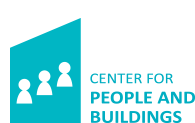ERES Conference 2017 Big Success!
5 july 2017

The 24th conference of the European Real Estate Society, also known as ERES, took place in Delft between June 28 and July 1 2017. This year it was organized by the department for Management in the Built Environment at Delft University of Technology, Faculty of Architecture and the Built Environment.
Organizers Hilde Remøy, Peter de Jong and many other Delft colleagues deserve a big compliment for their excellent organization. After a day specifically for PhD students, the conference started with two great key notes by Prof. Dirk Brounen, Eindhoven University of Technology (on current major societal issues) and our own chairperson Prof. Hans de Jonge, Delft University of Technology and Brink Groep (on trends and the need to pay more attention to end users). Approx. 450 participants could then choose from more than 300 presentations, clustered around such themes as Corporate Real Estate Management, Real Estate Valuation, Real Estate Market and Economy, Housing Market and Accommodations Policy, Area Development, Sustainable Construction, Performance Management, Risk Management, and Education in Real Estate. The welcome reception at Delft City Hall, Food Truck Festival and conference dinner in the Delft Old Church provided plenty of opportunities to network and reinforce existing relations.
Workplace Track
For the first time, ERES featured a separate Workplace Research Track, organized by Rianne Appel-Meulenbroek from Eindhoven University of Technology together with Tuuli Jylhä from Delft University of Technology. For over two days participants discussed the impact of the work environment on employee satisfaction, productivity, engagement, health and well-being. It became apparent that we are moving from organization-centered work and activity-based workplaces towards (as well) human-centered accommodations and attention to individual differences related to age, gender, education and personality (introvert vs. extrovert, individual vs. group-focused). The models exploring satisfaction and performance for knowledge workers are becoming ever-richer and better substantiated, with advanced statistical analyses of data from surveys, observations and focus groups. Resistance and acceptance, co-working spaces, “serviceability” and digital tools to measure space utilization, movement patterns and user preferences also received plenty of attention.
Contributions by Center for People and Buildings
Many presentations made use of CfPB publications. Theo van der Voordt headed the session on Employee Satisfaction and Performance. Together with Per Anker Jensen from Denmark, Theo presented some important conclusions from their books on The Added Vale of FM and FM and CREM as Value Drivers, on measuring and managing added value for accommodations, facilities and services. He finished with a plea for more integrated business cases, with attention paid not just to financial parameters, but also such aspects as health and well-being, creativity and innovation, flexibility and sustainability. Evi De Bruine, together with Dorannne Gerritse from the Hospitality Group, presented the conclusions of their Futures Forum research. Experts predict, among other things, that work will become increasing complex, IT tools and Big Data will have an even greater impact, and absenteeism will increase for employees who can’t keep up with the rapid pace of developments and workload.
Presentations and various papers may be downloaded from the conference site: Http://2017.eres.tudelft.nl.
The Workplace Research Track papers have been compiled into a special digital edition by Rianne Appel-Meulenbroek and Tuuli Jylhä. Interested parties can request this document by emailing Rianne.









